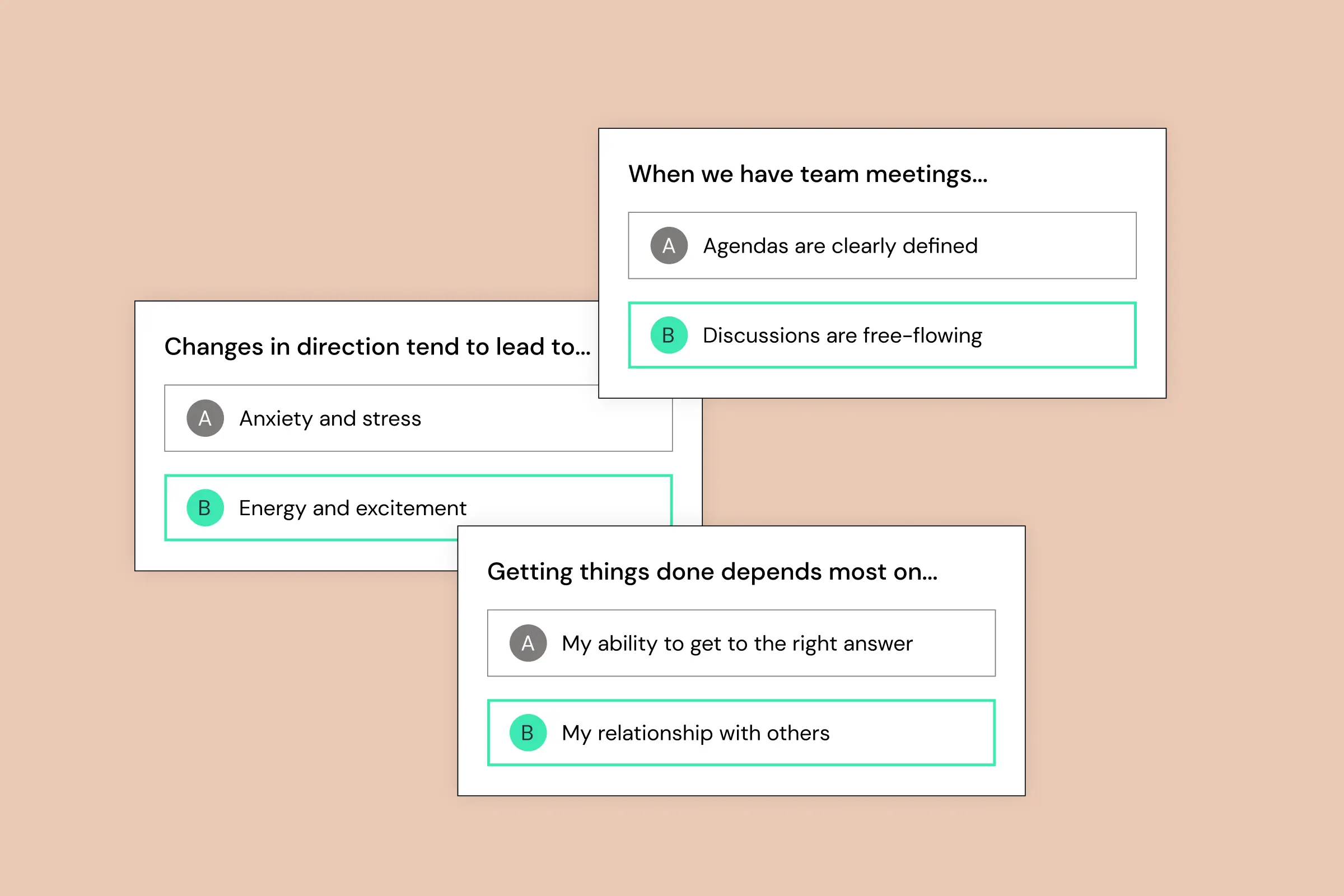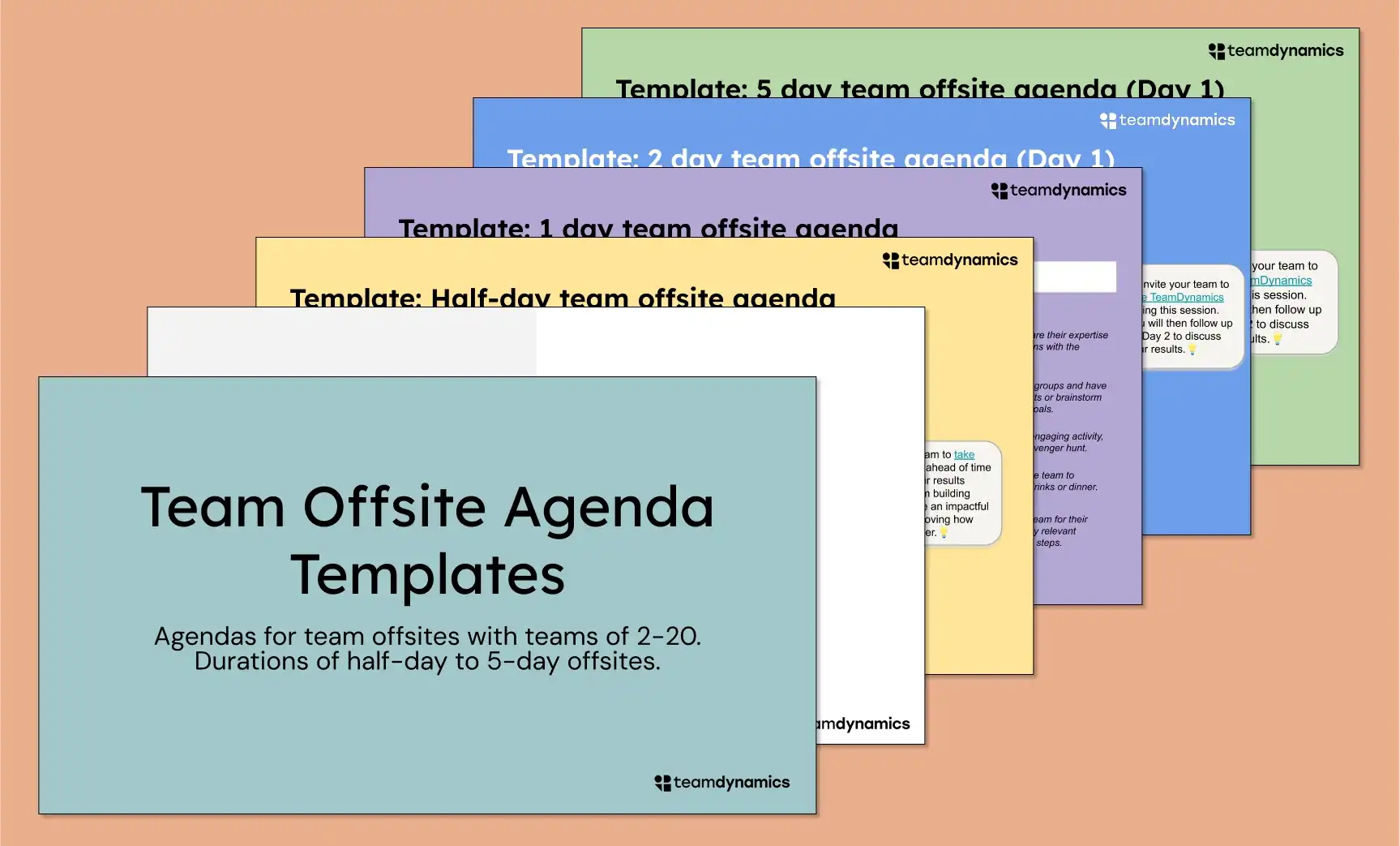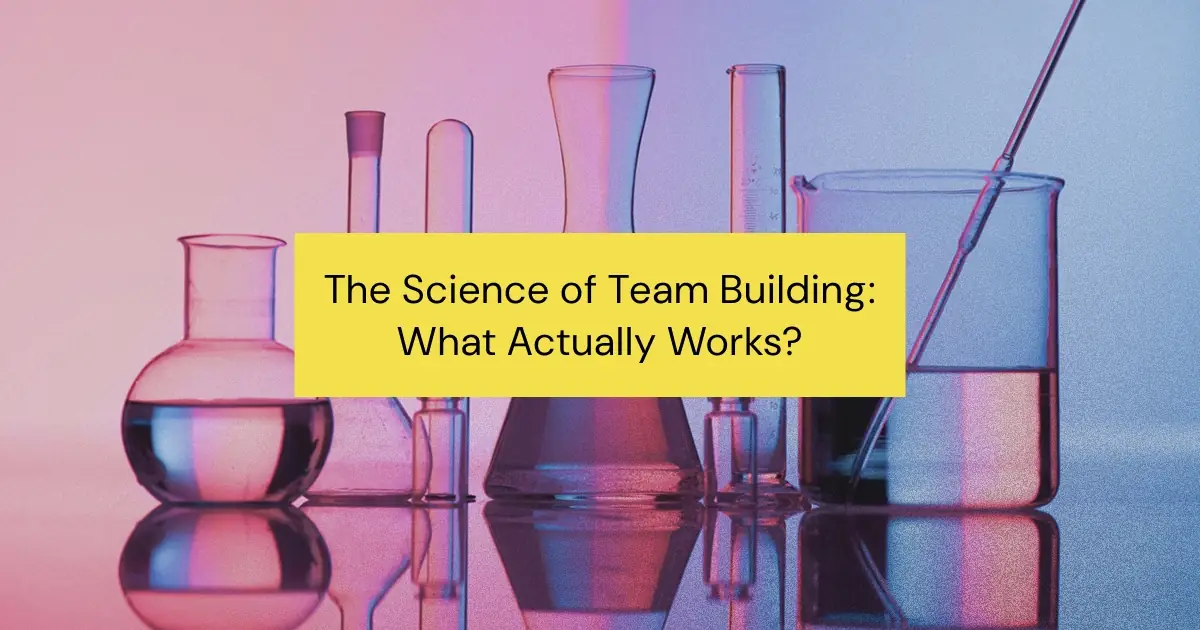Employee appreciation isn’t just a nice gesture—it’s a powerful tool for improving team morale and productivity. When employees feel valued, they’re more likely to stay engaged, motivated, and loyal to the company. In fact, studies show that businesses with strong recognition programs experience higher retention and overall performance.
While Employee Appreciation Day offers a great chance to celebrate your team, showing appreciation shouldn’t be a once-a-year event.
Regular recognition helps build stronger relationships and boosts job satisfaction. From personalized gifts to meaningful experiences, there are countless ways to make employees feel appreciated.
In this post, we’ll explore 10 creative ways to show staff appreciation that go beyond the basics. Plus, we’ll discuss how understanding your team’s unique preferences through TeamDynamics can help you tailor your approach, making recognition even more meaningful.
Why Staff Appreciation Matters
Recognizing your employees’ efforts is more than just a “feel-good” moment—it’s a strategic move for your business. When team members feel appreciated, they’re more motivated, productive, and loyal. In fact, studies show that companies with strong appreciation programs can see a significant increase in productivity and 21% higher profitability. Lack of recognition is the leading reason employees leave their job, with two-thirds of employees saying they will leave their job if they don’t feel appreciated.
Appreciation is also a key factor in building a positive company culture. When employees know their hard work is valued, it fosters a sense of belonging and commitment to the team. This isn’t just about boosting morale—appreciation can improve collaboration and communication, making your team more efficient.
However, not every employee responds the same way to the same kind of recognition. This is where tools like TeamDynamics come into play. By understanding your team’s behaviors and preferences, you can offer personalized appreciation that resonates with each individual, as well as with the team overall. Whether your team thrives on public praise, private recognition, or tangible rewards, knowing what makes them tick is crucial to getting appreciation right.
{{inline-cta}}
10 Ways to Show Employee Appreciation
Showing appreciation doesn’t have to be complicated or expensive. The key is to choose gifts that feel thoughtful and meaningful to your team. Here are 10 creative ways to recognize your employees and show them how much you value their hard work:
1. Personalized Gifts
What it is: Customized items such as engraved pens, monogrammed notebooks, or personalized desk accessories. Some companies even go the extra mile with customized clothing or personalized water bottles.
Why it works: Personalized gifts demonstrate that you’ve taken the time to consider the individual’s tastes and preferences. It’s more than just a generic reward—it’s something unique to them, making them feel recognized on a personal level. This approach works particularly well for smaller teams where individual contributions are more easily noticed.
When to use it: Personalized gifts are ideal for work anniversaries or milestone celebrations. If you want to make a single employee feel individually recognized for a significant contribution, this is a thoughtful way to do it. Personalized items work especially well when celebrating long-term employees or major career milestones, like promotions.
2. Experience-Based Rewards
What it is: Instead of material gifts, offer memorable experiences. These could range from event tickets (concerts, sports games, theater) to team-building activities like escape rooms, cooking classes, or even virtual experiences for remote teams.
Why it works: Experiences are often more memorable than physical gifts. They offer employees something to look forward to and are perfect for fostering team bonding. Group experiences, in particular, can bring teams closer together in a fun, informal environment, creating lasting memories that improve workplace relationships. Additionally, these experiences can double as team-building opportunities, blending work and fun.
When to use it: Perfect for rewarding the whole team after completing a large project or achieving a major goal. Experience-based rewards can also be used as a team-building opportunity, fostering stronger bonds outside the usual work environment. Use this after a period of high stress to give your team something fun and relaxing to look forward to.
3. Wellness Packages
What it is: A focus on employee well-being with wellness-centered gifts. This can include things like spa vouchers, subscriptions to meditation or fitness apps (e.g., Calm, Headspace, Peloton), or wellness kits filled with items like aromatherapy oils, healthy snacks, yoga mats, and ergonomic office gear.
Why it works: Prioritizing wellness shows your employees that you care about their mental and physical health, not just their output at work. In today’s high-stress work environments, gifts that promote relaxation, self-care, and a healthier lifestyle are highly appreciated. Wellness packages also signal that your company values work-life balance, encouraging employees to take care of themselves.
When to use it: Wellness packages are especially appropriate when you notice signs of burnout or after a particularly busy or stressful season. This type of gift is also great around holidays, where employees might appreciate some time to recharge mentally and physically.
4. Time Off or Flexibility Rewards
What it is: Offering rewards like surprise days off, extended paid time off, or allowing an employee to finish early on a Friday. For remote employees, consider offering an additional “work from anywhere” day or a flexible work schedule for a week.
Why it works: Time is one of the most valuable gifts you can give. Offering employees more control over their time shows that you trust them and recognize their need for rest and balance. Whether it’s a day off after completing a big project or extra time off during the holidays, rewarding employees with time gives them a chance to recharge and come back to work more energized and engaged.
When to use it: This is ideal after your team has completed a major project, met a tough deadline, or gone above and beyond during busy periods. Offering time off can be a highly appreciated gift after an employee has put in extra hours, showing that you value their need for balance.
5. Team Lunch or Dinner
What it is: Organizing a team meal, whether it’s a casual catered lunch at the office, a dinner at a nice restaurant, or even a virtual lunch for remote teams (where you send everyone a meal voucher). If you want to make it more fun, consider adding a cooking class or a meal-prep team challenge.
Why it works: Sharing food has always been a social bonding activity. A team lunch or dinner offers employees a chance to relax and connect outside of their usual work environment. It helps build rapport and trust within the team, fostering informal conversations that can lead to stronger team cohesion. For remote teams, organizing a virtual lunch event can replicate some of this bonding and help remote employees feel connected.
When to use it: A great option for group recognition, especially after a team achieves a shared goal or completes a project together. It also works well for celebrating seasonal holidays, fostering informal conversations, and creating stronger team bonds.
6. Learning & Development Opportunities
What it is: Offering growth opportunities by sponsoring courses, conferences, certifications, or workshops relevant to your employees’ career interests. You could also offer access to online learning platforms like LinkedIn Learning, Coursera, or Udemy.
Why it works: Employees appreciate when companies invest in their personal and professional growth. This kind of reward not only shows appreciation but also signals that you’re invested in their long-term success. It’s a win-win—employees feel supported, and the company benefits from their improved skills. For ambitious employees, learning opportunities are often more appreciated than material gifts.
When to use it: Perfect for high-performing employees who have shown interest in career growth. This gift is most effective after a positive performance review or as a reward for meeting long-term goals. It shows your company is committed to investing in your employees’ future.
7. Public Recognition or Awards
What it is: Publicly recognizing employees’ hard work during meetings, in company newsletters, or on social media. You can take it a step further with employee-of-the-month awards, certificates, or plaques. For a more modern touch, use digital badges or internal shoutouts on platforms like Slack.
Check out examples of shout-outs and employee thank you notes!
Why it works: Public recognition is a powerful motivator. Being acknowledged in front of peers boosts confidence and reinforces that their contributions matter. Public praise also encourages a culture of appreciation, where employees can see their efforts are noticed. It not only motivates the individual being recognized but also sets a positive example for the rest of the team, showing that hard work doesn’t go unnoticed.
When to use it: Ideal for recognizing an employee’s exceptional contribution to a specific project or company-wide initiative. Public recognition works well during all-company meetings or when you want to highlight an individual’s effort and inspire the rest of the team.
8. Office Upgrades
What it is: Practical gifts that improve the work environment, like ergonomic chairs, standing desks, high-quality headsets, or new tech accessories. You can also offer a budget for employees to upgrade their own workspace, whether in-office or remote.
Why it works: Improving the workspace shows employees that you care about their comfort and productivity. Small changes to an office setup—like a more comfortable chair or a better monitor—can have a big impact on day-to-day work life. For remote employees, offering a home office stipend allows them to create a more functional and enjoyable workspace, which can lead to improved productivity and satisfaction.
When to use it: Use this as a reward for long-term contributions, especially when employees have gone the extra mile in their roles. This gift is great for showing appreciation for their daily comfort and productivity, and it works well around work anniversaries or major personal milestones.
9. Charitable Donations in Their Name
What it is: Making a charitable donation on behalf of an employee to a cause they care about. Alternatively, you could offer employees the chance to take part in a company-sponsored volunteer day or give them the option to pick an organization where the company can donate its time or money.
Why it works: A charitable donation aligns with employees’ personal values, showing that you understand and support the causes that matter to them. This thoughtful gesture allows employees to feel like they’re making a difference, adding meaning to the reward beyond their work. It’s an especially meaningful gift for employees who value social responsibility.
When to use it: This is a perfect choice for employees who value social responsibility. It can be used during the holiday season, around birthdays, or when an employee reaches a significant personal milestone (such as finishing a volunteer project).
10. TeamDynamics Assessment and Workshop
What it is: A TeamDynamics assessment for your team, followed by a workshop to help employees understand the team's working style, as well as each individual's preferences, helps teammates understand how their strengths contribute to the team. This isn’t just a gift—it’s an investment in improving team collaboration and communication.
Why it works: A TeamDynamics workshop goes beyond appreciation—it provides employees with actionable insights into how they work and interact with their team. This can help the team function more effectively by improving communication and collaboration. Employees will feel valued not just for their work, but for who they are within the team dynamic. This gift also has long-term benefits, as the knowledge gained can improve how the team works together well into the future.
When to use it: This is ideal after a major team restructuring, when onboarding new team members, or after a period of tension or miscommunication. A TeamDynamics workshop is a great way to show appreciation while also improving team collaboration and understanding for long-term success.
Best Practices for Choosing Staff Appreciation Gifts
Choosing the right gifts for employee appreciation requires thought and understanding. It’s not about picking the most expensive or flashy option, but rather selecting something that resonates with your team. Here are some best practices to keep in mind:
1. Know Your Team’s Preferences
Not everyone likes the same kind of gifts. Some people might prefer practical items like office supplies or equipment, while others value experiences or public recognition. Use tools like TeamDynamics to gain insights into your team’s preferences and working styles. By understanding what motivates your employees, you can tailor your gifts to suit their individual tastes.
2. Consider Personalization
A generic gift may not have the same impact as a personalized one. When possible, customize the gift to reflect the employee’s interests, achievements, or role within the team. This could be as simple as adding their name to the item, or as thoughtful as choosing a reward that aligns with their hobbies or passions.
3. Timing is Everything
While Employee Appreciation Day is a great opportunity to celebrate your team, don’t limit recognition to just one day. Giving gifts at meaningful times—like work anniversaries, after completing a major project, or even when an employee goes above and beyond—makes the gesture more impactful. Timely recognition shows that you notice and appreciate their efforts when it matters most.
4. Make It Meaningful
Your appreciation gift doesn’t have to break the bank to be meaningful. The thought behind the gift is often more important than its monetary value. For example, a handwritten thank-you note paired with a small but thoughtful gift can go a long way in making employees feel valued.
5. Create Opportunities for Growth
Gifts that contribute to employees’ professional or personal development, like learning opportunities or workshops, show that you care about their long-term growth. Offering access to skills development or leadership training not only helps them improve but also makes them feel invested in by the company.
6. Encourage Team Building
Consider gifts that bring the team together. Activities like team lunches or TeamDynamics workshops can serve dual purposes: they show appreciation and help improve communication and collaboration. Team-building activities provide a shared experience, strengthening relationships and boosting overall team performance.
7. Make It Fair
Ensure that your appreciation efforts are consistent across the board. While you can personalize gifts to suit individual preferences, it’s important that all team members feel equally valued. Avoid giving extravagant rewards to only a few employees, which can lead to resentment or feelings of unfairness among the rest of the team.
8. Recognize Contributions Both Big and Small
Don’t wait for huge achievements to show appreciation. Small, everyday efforts are just as important and should be recognized too. When employees know their hard work is consistently noticed, they are more likely to stay engaged and motivated.
When to Give Staff Appreciation Gifts
Timing plays a crucial role in how appreciation is received. While Employee Appreciation Day is a great opportunity to show gratitude, there are many other moments throughout the year that can be just as impactful. Here’s a guide to when it’s best to give staff appreciation gifts:
1. Work Anniversaries
Recognizing an employee’s tenure shows that you value their long-term contributions. Celebrating their work anniversary with a personalized gift or an office-wide recognition can reinforce their sense of belonging and commitment to the company.
2. After Major Project Completion
When a big project wraps up—especially one that required long hours or tight deadlines—it’s the perfect time to reward the team. Acknowledge the hard work that went into the project with a group celebration, extra time off, or thoughtful gifts to show that their efforts didn’t go unnoticed.
3. Employee Appreciation Day
Employee Appreciation Day is a widely recognized event, making it an obvious choice to give gifts and recognize the entire team. However, it’s also important not to make this the only time of the year you show gratitude; Employee Appreciate Day gifts can come across as disingenuous or perfunctory if not part of a broader pattern of staff appreciation. Consider using this day as an opportunity to kick off a year-round appreciation program.
4. Quarterly or Annual Performance Reviews
Tying gifts to performance reviews can make the recognition feel more official. Rewarding employees based on the goals they’ve met during the review period reinforces the connection between hard work and appreciation. This is also a good time to offer development-related gifts, like training opportunities or leadership workshops.
5. During Tough Times
If the team is going through a challenging period—whether it’s due to increased workloads, organizational changes, or external factors—showing appreciation can make a significant difference in morale. Offering a small token of gratitude during stressful times lets employees know you value their resilience and effort.
6. Holidays
The end-of-year holidays are a traditional time to show appreciation. However, consider mixing it up by giving gifts around other holidays or occasions, like Thanksgiving, which focuses on gratitude, or smaller holidays that may be significant to your team members.
7. After Exceptional Performance
When employees go above and beyond, it’s important to recognize their exceptional work immediately. Offering a spontaneous reward, such as a gift card, public recognition, or time off, reinforces the value of hard work and motivates continued excellence.
8. After New Team Members Join
Welcoming a new team member with a small gift—like a personalized item or company swag—can make them feel more comfortable and integrated into the team from the start. It’s a great way to set a positive tone and show that your company values every individual.
9. When Team Members Depart
While it’s not always easy to say goodbye to a departing employee, sending them off with a thoughtful gift or celebration shows that you appreciate their time with the company. Whether it’s a personalized memento or a team gathering, this gesture reflects positively on your company and helps maintain good relationships with alumni.
10. As Part of Team-Building Activities
Team-building events are great opportunities to distribute appreciation gifts. For example, after a TeamDynamics workshop, offering employees a small token of appreciation or a team-based reward can enhance the experience. It combines appreciation with a focus on team cohesion, boosting both morale and collaboration.
How TeamDynamics Enhances Team Appreciation
Giving meaningful appreciation is about more than just selecting the right gifts—it’s about understanding your team on a deeper level. That’s where TeamDynamics can play a vital role in helping you fine-tune your approach to recognition and appreciation.
1. Understanding Team Behaviors
Appreciation is most effective when it’s aligned with how your team naturally works together. TeamDynamics helps you understand the underlying behaviors within your team—how they communicate, generate insights, make decisions, and execute plans. This allows you to recognize contributions that are directly tied to your team’s strengths and working styles. For instance, if your team excels in collaborative environments, offering group-based rewards or experiences will feel more natural and appreciated.
By understanding the dynamics of how your team operates, you can offer appreciation that reinforces the positive behaviors you want to see more of, creating a feedback loop that strengthens team performance and morale.
2. Understanding Individual Preferences
Every employee has their own preferred way of being recognized. Some might enjoy public praise, while others prefer a quiet, private “thank you.” With TeamDynamics, you can assess the different working and communication styles within your team. This helps you tailor your appreciation strategies to fit each person’s unique preferences, ensuring that your recognition efforts are well-received and impactful.
For example, an employee who values clear, direct communication may appreciate detailed feedback on how their work contributed to the team’s success. On the other hand, someone who thrives in collaborative environments may feel most appreciated through group-based rewards, like team lunches or experience-based gifts.
3. Enhancing Team Collaboration
Appreciation doesn’t just have to be individual—it can also be a team effort. TeamDynamics helps you understand how your team functions together, identifying strengths, gaps, and opportunities for improvement. When you recognize employees for their contributions, it’s important to consider how they fit into the larger team dynamic.
By using TeamDynamics assessments and workshops, you can help your team see how their behaviors and strengths contribute to overall team success. This not only improves individual appreciation but also strengthens team collaboration. When employees understand how their efforts connect with their team’s broader goals, they feel more valued and motivated to continue contributing.
4. Building a Positive Culture
Appreciation and recognition are critical for building a positive company culture. When employees feel consistently appreciated, they are more likely to engage and contribute to a healthy, collaborative work environment. TeamDynamics can help you foster this culture by giving you insights into how each team member interacts with others and fits within the team’s norms.
By integrating TeamDynamics into your team’s culture, you can align your appreciation efforts with the way your team works, communicates, and grows together. This helps build a culture where recognition is not only expected but also deeply connected to how the team operates and thrives.
5. Tailoring Long-Term Recognition Strategies
One-time gifts are great, but long-term recognition is even better. TeamDynamics helps you continuously understand your team’s evolving needs and preferences. As team members grow, develop new skills, or take on new roles, their recognition needs may change.
By regularly using TeamDynamics assessments, you can keep track of these shifts and adjust your appreciation strategies accordingly. Whether you’re recognizing individual achievements, team milestones, or company-wide success, TeamDynamics helps you stay in tune with what truly resonates with your team.
Conclusion
Showing appreciation for your employees is one of the simplest and most effective ways to boost morale, increase productivity, and build a positive company culture. From personalized gifts to experience-based rewards, there are countless ways to make your team feel valued. However, the most meaningful appreciation comes from understanding your employees—not just as workers, but as individuals with unique preferences and strengths.
By incorporating tools like TeamDynamics, you can take your recognition efforts to the next level. Understanding how your team behaves, collaborates, and communicates allows you to offer tailored appreciation that resonates with both individuals and the entire team. Whether it’s a personalized gift, a team-based reward, or an opportunity for growth, TeamDynamics helps you show appreciation in a way that’s both impactful and strategic.
Want to give TeamDynamics a try? Take a 2-minute trial and get a preliminary view of your TeamDynamics for free!
Remember, appreciation doesn’t have to wait for Employee Appreciation Day. Make recognition a regular part of your company culture, and watch your team thrive all year long.




.png)











































